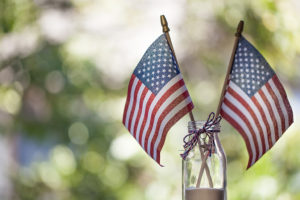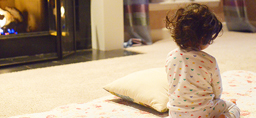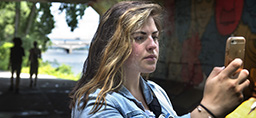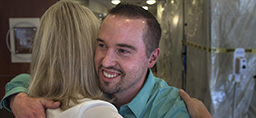
Fireworks are flying off store shelves and plans are percolating for backyard bonfires.
Health officials, meanwhile, are preparing for the worst and hoping for the best as the July 4 weekend quickly approaches.
Experts worry there could be a spike in burn and explosion injuries.
In 2019, 21% of burn center patients requiring admission to the Spectrum Health Regional Burn Center had summertime-related injuries. That includes firework injuries, bonfire injuries, brush fire burns and injuries from gasoline fires, often when lighting bonfires.
The number of bonfire- and fireworks-related burn injuries that required hospital admission dipped to 13% in 2020. This is likely due to fewer celebratory gatherings because of COVID-19.
“This year is different,” said Amy Spencer, MD, medical director of the burn center. “These types of burns are common every summer and I’m worried we’ll see more this year.”
Dr. Spencer has been watching the retail sales reports, and it’s looking like there will be quite a few fireworks parties this year.
“Fireworks are dangerous, and I’m worried there will be lots of inexperienced and careless users out there around the Fourth of July,” she said. “Not many people know that a sparkler burns at 1200 degrees. That’s five times hotter than boiling water and can melt glass. People need to know that there are no safe fireworks.”
Many fireworks parties are accompanied by bonfires and, with state park campgrounds reopening, there will be a lot of people enjoying campfires. Both can be dangerous.
“Campfires can be enjoyable, but you have to be cautious and vigilant, especially with children around,” Dr. Spencer said. “You must use caution when lighting them and be aware that the fire pit can contain very hot coals hidden by ash the next morning.”
She and her colleagues at the burn center ask that people enjoy fireworks lit by professionals at events and forego their own home displays. There are lots of patriotic or entertaining activities that can make any backyard gathering fun.
Some alternatives could be:
- Using glow sticks as they glow in the dark and are a safe alternative to a sparkler. Confetti poppers or colored streamers are also fun.
- Making some noise. Noisemakers are sure to make a statement. They may be found at local party supply stores or you could make your own.
- Enjoying an outdoor movie night. Set up a screen and projector. Just don’t forget the bug spray.
- Spraying some red, white and blue silly string.
- Making a patriotic craft with the whole family.
If you still plan to light off some pyrotechnics, here are some pointers:
- Do observe your local and state laws.
- Do have a designated, sober adult light all legal fireworks.
- Do light one firework at a time and move away quickly.
- Do keep children and other observers at a safe distance behind a protective barrier.
- Do store fireworks out of children’s reach.
- Do keep a bucket of water close for disposal of fireworks.
- Don’t allow children to use fireworks, including sparklers.
- Don’t attempt to alter, modify or re-light fireworks.
- Don’t point or throw lit fireworks at anyone.
- Don’t allow children to pick up the spent fireworks as some may still be active.
- Don’t hold lit fireworks in your hand.
- Don’t consume alcohol or drugs when lighting fireworks.
- Don’t forget you can be held legally and financially liable for injuries caused by using fireworks.
If someone does experience a burn during holiday festivities, here is some basic first aid to know:
- Cool the burn with cool (not cold) water to stop the burning process.
- Remove all clothing and jewelry from the injured area.
- Cover the area with a dry clean sheet or loose bandages.
- Seek medical attention.
 /a>
/a>
 /a>
/a>
 /a>
/a>